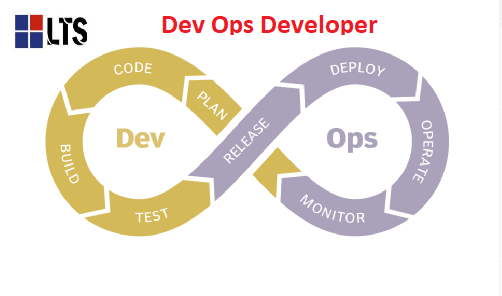DevOps has grown exponentially over the last decade and has caught the attention of all companies, whether established organizations or start-ups. There are many reasons this technology impacts businesses, but the main one is customer satisfaction.
Customer satisfaction is one of the most significant challenges of the 21st century. Businesses need solutions that help them meet customer demands ‘faster’ and deliver ‘unmatched quality. DevOps benefits organizations by transforming SDLC processes, increasing flexibility and productivity, speeding up deployment processes, and improving automation. DevOps is, therefore, the perfect solution for today’s business requirements.
If you believe in providing the best service to your customers and achieving 100% customer satisfaction, then you might look to DevOps and its role. Before we dig deeper, here are some stats that show why customer satisfaction is essential to a thriving business. 91% of customers with poor customer experience would not actively proceed with any business further with the company.
Need to Hire a DevOps Developer?
To Hire a DevOps developer, you need to consider a few points. DevOps is a way to streamline all your software lifecycle processes. Hiring DevOps engineers enables you to assign tasks related to ensuring close collaboration between development teams and simplifying workflows, thus reducing the time it takes to get your software product to the end user.
DevOps is considered a viable option, surprising business people who need to spend their budget on something other than the product. But sooner or later, digital products with multiple environments will require increased software development productivity. Scaling or distributing systems is another reason to hire a DevOps developer. This allows experienced DevOps engineers to save time by leveraging the centralized nature of cloud computing to automate repetitive manual processes related to releasing the management and project builder testing.
So How can DevOps Help Improve the Customer Experience?
DevOps Drives Innovation:
Business innovation is one of the company’s most essential DevOps benefits and is often overlooked. Business innovation is defined as the process of brainstorming new ideas. Implementing this idea will improve your workflow and improve your customer experience.
DevOps Brings Agility:
21st-century customer demands are higher in terms of product complexity and time constraints. Companies must build agility into their processes to meet these challenges and stay ahead of the competition. One of the most significant benefits of adopting a DevOps culture is agility.
Agility here is an umbrella term that encompasses a variety of advanced skills. DevOps meets all the criteria widely recognized as a critical component of agility, enabling organizations to become more agile. For example, DevOps service providers can implement such tools in their SDLC processes to help balance capacity with fluctuating demand.
Improving Quality with DevOps:
Upgrading quality is one of the most significant benefits of the best business intelligence provider for businesses. Software bugs and errors are the biggest threat to applications. DevOps helps identify code earlier and facilitates faster problem resolution, improving the overall quality of software.
DevOps breaks down silos between departments and makes communication dynamic 24/7. In addition, modular programming and iterative development improve product quality. A collaborative DevOps environment fosters a culture of knowledge sharing among the various teams involved in software development. Continuous monitoring, testing, and automation of DevOps code also help improve overall build quality.
DevOps Accelerates the Development Process:
The main principles of DevOps (continuous integration, continuous deployment, rapid feedback cycles, and automation) aim to make the software development process faster and more efficient. As we know, DevOps is an evolutionary part of agile methodology that leverages automation to help DevOps better manage the total cost of production.
Reduce product development costs by 25%. This enables companies to provide high-quality products at low prices and satisfy their customers. To remove SDLC roadblocks and ensure a smooth process.
Conclusion
DevOps removes traditional barriers between developers and operators and provides a way for businesses to adapt to changing consumer demands, empowering organizations to impact customer satisfaction. There are many ways a Dev Ops model can help an organization achieve 100% customer satisfaction. So, it’s time to adopt a Dev Ops approach to ensure faster delivery and greater customer satisfaction and help your business reach new heights of success.
